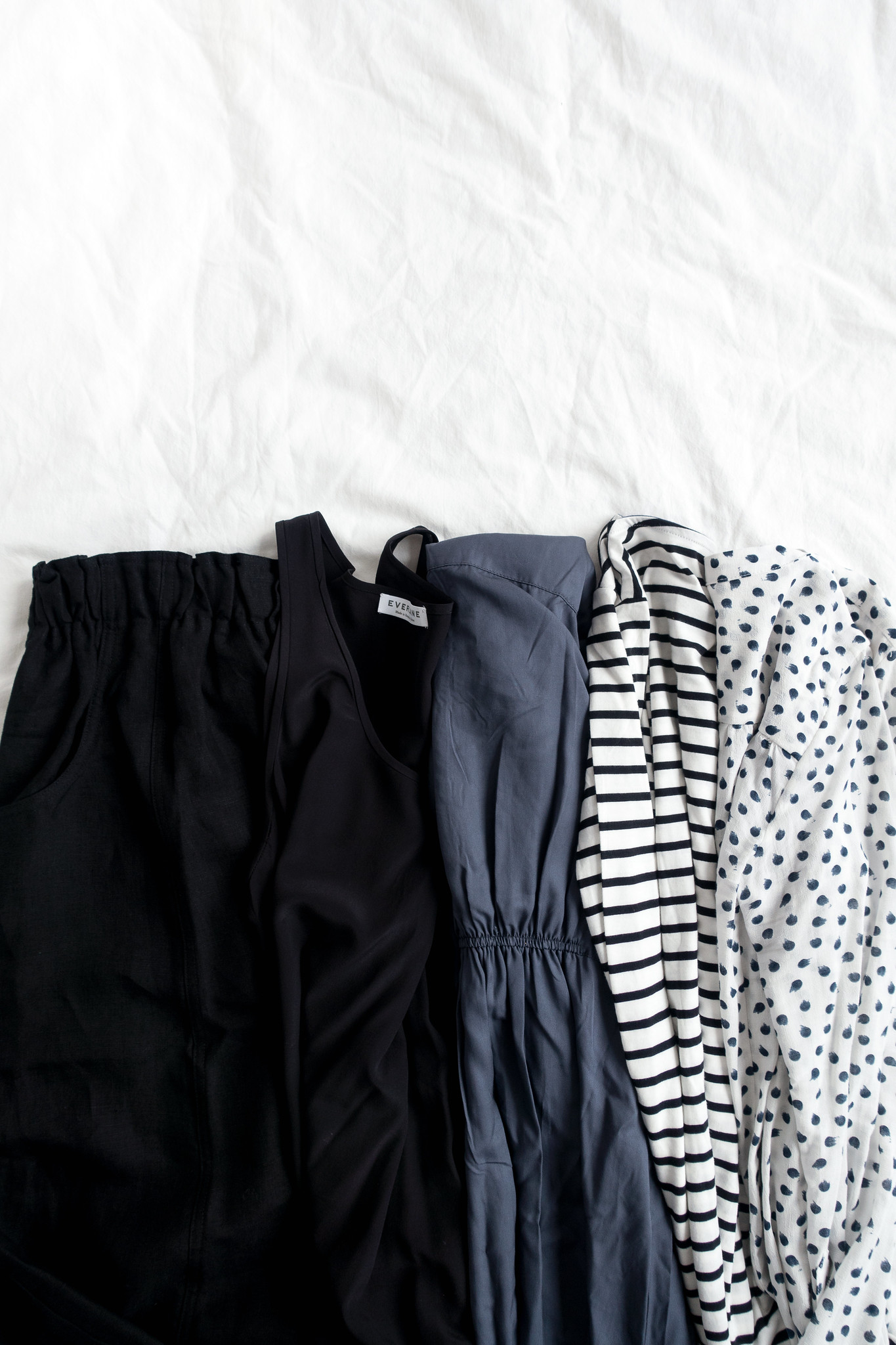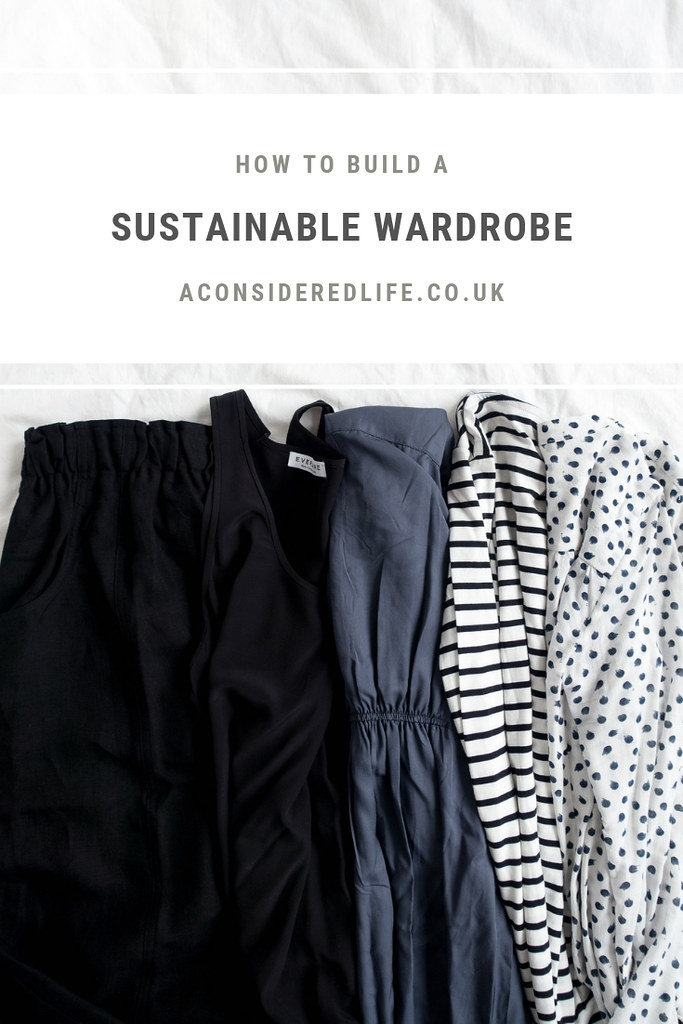
The global fashion industry is exploitative and environmentally damaging. We can change that and we don't have to stop caring about style or even stop buying clothes. There are a few changes we can make in the way we choose to shop for our clothing that will make our wardrobes more conscious while protecting workers and our environment from the damaging effects of the fast fashion industry.
1 | Wear What You Already Own
The most ethical wardrobe is one that is used, loved, and worn. A lot of people wear only 20% of the clothing they own, that’s shocking. The best way you can make your wardrobe more conscious is to love what you’ve got and take care of what you own. Putting the shopping on hold with a shopping ban while you pull out all your clothing and rework those unwanted pieces into new outfits. A style challenge like Project 333 or the 10 x 10 wardrobe can help refresh your style and make you feel excited about your wardrobe again.
· love what you’ve got
· take care of what you own
· reuse and repurpose
· implement a shopping ban
· refine your style
2 | Invest In Quality Over Quantity
There’s no point denying it, clothes don’t last forever and avoiding purchases is futile. When the time comes to buy new clothing remember Vivienne Westwood’s famous words: “buy less, choose well, and make it last.” Keep a wishlist of items you want; it’ll make you think before you buy, give you a cooling off period to rethink what you really need, and prevent impulse purchases. Focus on quality over quantity by focusing on fabric and craftsmanship. Consider starting a minimalist wardrobe, which will help guide you in making informed choices as well as helping you to build a style-led yet conscious wardrobe.
- buy less, choose well, make it last
- rethink what you need
- keep a wishlist
- think before you buy
- start a minimalist wardrobe
- consider fabric quality and style
3 | Don’t Buy Fast Fashion
There is no such thing as a conscious fast fashion. Fast fashion is unethical and unsustainable; the globalised, mass production methods used intended to be produced, sold, and discarded at an alarming rate. Consumers are encouraged to buy cheap and throw away. Building a conscious wardrobe relies on a slow approach to fashion. If there’s only one thing you do to change your wardrobe it should be to ditch fast fashion; ignore trends, stop reading fast fashion blogs and magazines, and educate yourself about how destructive the industry has become. Watch The True Cost and read Overdressed for more information; join the Fashion Revolution by asking #whomademyclothes.
· ignore trends
· educate yourself
· stop reading fast fashion blogs/magazines
4 | Shop Second Hand
The most ethical and sustainable way to shop for new clothes is to buy secondhand. 13.1 million tons of textiles are thrown away every year. Fast fashion has caused us to become complacent about our waste; we don’t think twice about the “buy-and-toss” cycle we’ve got ourselves into. We no longer “make do and mend.” When clothes from fast fashion retailers are so cheap, why buy second hand when we can buy new for the same price? For our wardrobes to be conscious, ethical, and sustainable we need to stop buying new and make use of the perfectly good clothing available from thrift stores and online selling sites. Using apps like eBay and Depop, and taking the time to shop from thrift stores, we’ve elevating some of the burden we’re putting on the planet and getting quality items for cheap without compromising on our ethical values. Here’s a guide to shopping secondhand.
· eBay
· Depop
· thrift stores
· shop locally
5 | Shop Ethically
So you need new clothes but you don’t want to shop from fast fashion chains and you can’t find what you want secondhand? Here’s a list of ethical fashion brands to get you started! It will take a little while to find your feet; research your options, learn some shopping tips and tricks, and get stuck in by supporting ethical brands. When you avoid shopping as a hobby and see it more as an investment that requires consideration, building a conscious wardrobe becomes second nature. It’s more about finding staple pieces to last years rather than trend-led fashion; the focus is on quality and style, rather than cheap fabrics and seasonal fashion. It’s all about reminding ourselves everything we buy has an impact on our environment, we’re responsible for those decisions and we can make a change by voting with our money.
· research your options
· learn shopping tips and tricks
· avoid shopping as a hobby
· support ethical brands
